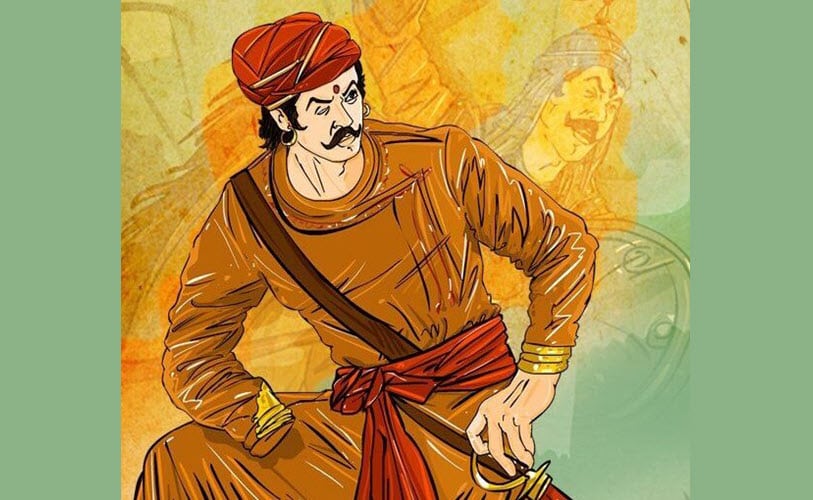Rana Sanga: The Warrior King of Mewar’s Last Stand

Image Courtesy: dharmayudh.com
Rana Sanga (12 April 1482 — 30 March 1528), also known as Rana Sangram Singh, was a prominent Rajput ruler who lived in India during the late 15th and early 16th centuries. He was the ruler of the Mewar Kingdom, which was one of the most powerful Rajput states in northern India during that time. Rana Sanga is remembered for his valor, military prowess, and his efforts to resist foreign invasions, particularly from the Mughals
Life and Legacy
Rana Sanga was born on 12 April 1482, in Mewar, which is now present-day Rajasthan, India. He belonged to the Sisodia clan, which was one of the leading Rajput clans in Mewar. Rana Sanga was the son of Rana Raimal, who was the ruler of Mewar at the time. From a young age, Rana Sanga was trained in warfare, horsemanship, and other martial arts, which would later play a crucial role in his career as a warrior king.
Rana Sanga ascended to the throne of Mewar in 1508, after the death of his father Rana Raimal. He faced numerous challenges early in his reign, including internal strife and external threats from neighboring kingdoms. However, through his military acumen and political alliances, Rana Sanga managed to consolidate his power and expand his kingdom.
One of the most significant aspects of Rana Sanga’s career was his military campaigns against foreign invaders, particularly the Mughals under Emperor Babur. Rana Sanga fiercely resisted Babur’s attempts to invade India and was known for his skillful use of cavalry, which became the hallmark of his military strategy. He formed alliances with other Rajput states and Hindu kings to counter the Mughal threat and protect Hindu traditions.
One of the most famous battles fought by Rana Sanga was the Battle of Khanwa, which took place on 17 March 1527. In this battle, Rana Sanga led a coalition of Rajput states against Babur’s forces. Although Rana Sanga displayed great valor and courage, his army was defeated, and he was critically wounded in the battle. Despite his defeat, Rana Sanga’s resistance against the Mughals inspired other Rajput states to continue the fight against foreign invasions.
After the Battle of Khanwa, Rana Sanga’s health deteriorated, and he faced internal challenges in his kingdom. However, he continued to resist the Mughal invasions until his death on 30 March 1528. Rana Sanga is remembered as a valiant Rajput ruler who fought against foreign invasions and defended the honor and sovereignty of his kingdom. His military tactics and courage continue to be admired by historians and Rajput communities in India, and he is often regarded as one of the greatest Rajput warriors in Indian history.
Observer Voice is the one stop site for National, International news, Sports, Editor’s Choice, Art/culture contents, Quotes and much more. We also cover historical contents. Historical contents includes World History, Indian History, and what happened today. The website also covers Entertainment across the India and World.

